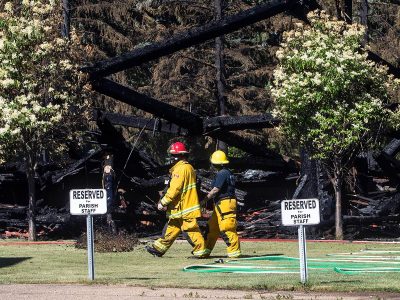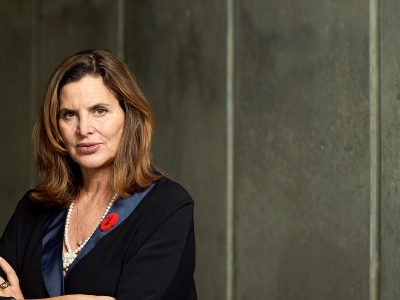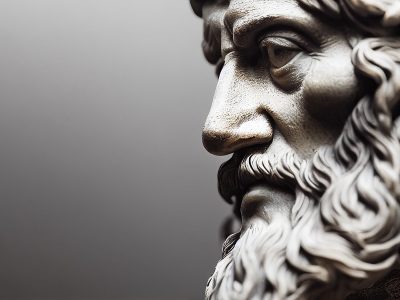Lead image by Nils Huenerfuerst / Unsplash
By James Deaville
This article is republished from The Conversation under a Creative Commons licence. All photos provided by The Conversation from various sources.
James Deaville is a professor of music at Carleton University.
The Democratic National Convention (DNC) in Chicago is providing a spectacle for music-lovers.
The second night of the convention featured an innovative musical delegate roll call that included rapper Lil Jon performing his hit “Turn Down for What” and hit songs blasted to the crowd by DJ Cassidy, an American DJ and record producer. A full Spotify playlist of the songs appeared not long after.
On the first night of the convention, Beyoncé’s song “Freedom” played as Democratic presidential candidate Kamala Harris walked on and off the stage (Donald Trump’s accompaniment at the Republican National Convention in July was Lee Greenwood’s “God Bless the U.S.A.“)
“Freedom” is also the soundtrack for Harris’s rousing new campaign video, indicating Beyoncé’s endorsement and highlighting the Harris campaign’s branding strategy. Rumours are swirling that Beyoncé may perform at the convention, solidifying her endorsement and illustrating the key role music and musicians are playing at the convention.
The power of music
Music in fact serves as an integral part of the extravaganzas known as national party conventions in the United States. Their soundtracks can tell us almost as much about a party and a candidate’s identity and ideology as their meticulously planned platform and forceful public rhetoric.
Sometimes we may not even be consciously aware of music’s effect upon us. But as music theorist Nicholas Cook has argued, music nevertheless serves as the “ultimate hidden persuader.” Advertising — whether for consumer goods, services or political candidates — has exploited this phenomenon since the days of radio.
In addition to live performances and DJs, background music can also play a more subtle but important role during political conventions: unseen, yet powerfully conveying aspirational messages of unity and strength. Songwriters and arrangers typically make use of the emotional potential of recognizable stylings for epic, horror or romantic contexts, for example.
Even as far back as 1860, music was already being used inside and outside the halls of Democratic and Republican conventions as brass bands played patriotic songs.
Music can unify
From then until the present day, Republicans and Democrats have mobilized music at their conventions to ignite spirit among delegates, foster unity on the floor of the hall and fill in gaps in the stage action.
Musical selections are curated according to the artists’ political leanings, the songs’ ethos, the candidates’ ideology, high-profile contemporary issues and the expectations of the politician, the party or the delegates.
Sometimes songs stand out, such as the early 19th century “Tippecanoe and Tyler Too,” which served as the theme for William Harrison’s Whig Party campaign of 1840, or “Happy Days are Here Again,” which was played at the 1932 Democratic convention as Franklin D. Roosevelt was nominated the party’s presidential candidate.
Artists’ roles at the Democratic National Convention
For the 2024 conventions, the aforementioned Greenwood and Beyoncé songs functioned as themes for the events.
In that vein, the Democrats appear to have flipped the musical script on the Republicans, for whom country and rock music have served as mainstays in campaigns.
First-night DNC performers included Mickey Guyton and Jason Isbell, whose country and country-adjacent music reflect a shift in popular music toward the esthetics and sound of country. On the second night, in addition to Lil Jon, Patti LaBelle and Common appeared.
Writing in The New York Times, journalist Matt Labash commented that by having Isbell “singing ‘Something More Than Free‘ in front of an American flag on a barn… Republicans have been out-sung again.”
For their part, Trump and the RNC likewise turned tables on the Democrats by featuring Sam & Dave’s 1966 R&B hit, “Hold On, I’m Coming,” after the former president’s acceptance speech. Singer Sam Moore of Sam & Dave forbade Barack Obama — or any other politician — to use the song at his rallies.
The estate of soul legend Isaac Hayes, who co-wrote the song, has threatened legal action against Trump for using the song. David Porter, Hayes’s co-author, has protested the use of his songs for political campaigns.
When artists complain
If a political candidate or party has paid licence fees for performance rights at political campaigns, the artist has no basis for complaint.
That wasn’t the case for the estate of Canadian artist Leonard Cohen, which publicly rebuked the Republican National Committee for its unauthorized use of “Hallelujah” at the 2020 virtual convention. Neil Young also sued the Trump campaign over the inclusion of “Rockin’ in the Free World” at 2020 campaign events.
Most recently, Celine Dion and Sony have complained about the Trump campaign’s unendorsed use of her song “My Heart Will Go On” at a Montana rally in early August.
Dozens of artists have openly spoken against the Trump campaign’s unauthorized use of their music.
Cover bands
One way around unauthorized use of music by convention organizers is to hire cover bands to perform the songs. As Alexandra Roberts, a professor of law and media, commented recently: “If the band plays covers, then they can avoid using sound recordings… [and] musicians will be less angry or offended to find out that a song they recorded was played by someone else.”
Enter Sixwire, the five-person Nashville cover band hired to perform at the Republican convention, which some critics have called a “dad band” playing “dad rock.”
The band’s convention playlist featured rock classics like Cheap Trick’s “I Want You to Want Me,” John Mellencamp’s “R.O.C.K. In The U.S.A.,” and, of course, Greenwood’s “God Bless the U.S.A.” Listeners may have suspected Sixwire of trying to troll the Democrats by playing Fleetwood Mac’s “Don’t Stop,” Bill Clinton’s 1992 theme song.
In comparison, the unidentified band playing in the background during the opening night of the Democratic convention had a relatively minor role, usually providing short walk-ons and walk-offs that were appropriate for the speaker.
These snippets ranged from a classic rock riff for UAW President Shawn Fain to R&B for Sen. Raphael Warnock and Rachel Platten’s “Fight Song” for Hillary Clinton. Other than the Platten song and Kygo and Whitney Houston’s “Higher Love” for President Joe Biden, the ensemble’s musical fragments were not substantial enough for audiences to identify. Instead, they provided a brief musical burst that characterized the person and the mood.
‘Do something!’
It’s important to note two other styles of music at conventions that we can define as “organized sound.”
The first involves the rhythmic chants from delegates at the convention, typically inspired by the words or even the presence of a speaker. That happened on the second night of the convention, when Michelle Obama called for delegates to “do something!” before they returned the chant.
The other — and more traditionally musical — involves the soundtracks for the displayed videos, which adopt the tone for the message being communicated, whether it’s fear or hope.
Taking in the Democratic Convention this week can open up new perspectives for observers around the world — that is if they endeavour not just to pay attention to the speeches, but to the music as well.
![]()
Thursday, August 22, 2024 in The Conversation
Share: Twitter, Facebook



